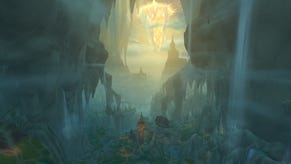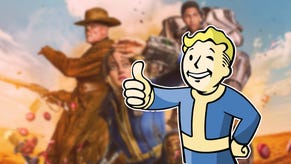Best of 2018: How God of War hides its big story reveals in plain sight
It’s been a wild year for VG247, so to celebrate we’re going to be republishing some of our favourite work published in 2018 – opinion pieces, features, and interviews, that we’ve enjoyed writing and reading, and which we believe showcase some of our best work. Enjoy!
How God of War hides its big story reveals in plain sight was first published on May 11, 2018.
Did you notice how many of God of War's big reveals were hiding in plain sight?
God of War is a game of many triumphs. It has satisfying combat, and a world big enough to encourage exploration that somehow never overstays its welcome. It’s also a game fond of hiding something worthwhile around every corner, pushing you to scour every cranny if it means spending more time in its gorgeous world.
Underlining it all is a coherent story with a clear beginning, middle, and end. God of War’s story is relatively straightforward, even if the game spends time teasing much bigger stakes that don’t ever come into play.
But one thing you may not notice in your first playthrough is how so much foreshadowing there is of major plot points. Many voice lines you brush off, and many encounters and quotes you never think twice about end up having more meaning than you initially realise.
Make it to the end, and you’re rewarded with context. As I sat back taking the ending in, I decided to watch the opening minutes again. My first time through the game, a few particular lines stuck out, but I quickly forgot about them as the story picked up.
Now that God of War's offered all the answers, I thought a second viewing would be worth it. And what a worthwhile endeavour it turned out to be, because it lead me to appreciate another aspect of God of War’s writing I hadn’t considered before.
We’re going to SPOIL much of God of War’s story beyond this point, including the ending and other major reveals. It’s best to experience these on your own, so turn back now if you haven’t.
After a brief introduction to the new Kratos and his boy, Atreus, the game throws you into a 30-minute tutorial: a hunt for some meat. This deer hunt also helps establish our two main heroes, but the game’s first “real” moment – the moment you know the adventure is about to begin – is when you meet Baldur.
For a decent chunk of the game, Baldur is referred to as The Stranger. Both yourself and Kratos are clueless as to his identity. Baldur appears a bit off-kilter, and you’re expected not to take everything he says at face value. Go back and re-watch that scene, and you’ll realise how many of the game’s story beats and twists were hiding in that conversation.
The first words out of his mouth are, “There’s no use hiding anymore. I know who you are - more importantly, I know what you are.” You’re meant to think he’s talking about Kratos’ past in Greece and his divinity. Even Kratos believes that’s what Baldur is referring to.
The story later reveals that Baldur was sent by Odin to track down a particular Giant whom the Allfather was having no luck finding on his own. That Giant, Faye, is Atreus’ mother, and she's been hiding in a cabin away from the eyes of Odin. In this first encounter, Baldur makes clear who he was looking for, he just didn't know she's already dead.
Upon laying eyes on Kratos, Bladur remarks, “I thought you’d be bigger”, and “long way from home, aren’t you?” – goading him to fight. These lines make sense if you’re talking to someone you’ve been led to believe is a Giant hiding amongst men. He even expects Kratos, mistakenly thinking he’s the Giant he was sent after, to know what he’s talking about.
A Giant would know, obviously, so when Kratos denies it, Baldur replies that he “thought your kind was supposed to enlightened, so much better than us, so much smarter.” This is another red herring, as you’ll automatically think it’s a reference to ancient Greece's culture, when in fact Baldur is talking about the Giants.
Earlier in the scene, when Kratos asks Atreus to hide in the cellar, the boy is surprised, saying that he thought he wasn’t supposed to go there. This exchange doesn’t mean much at first, since the reason for it could be anything. When you return to the house to take out the Blades of Chaos for the first time, Atreus’ reply in the opening mission will make complete sense.
Kratos clearly doesn’t want his kid finding out about his past, and since that’s where part of his past is hidden, he definitely doesn’t want him stumbling upon it.
This first fight even drops a few other hints about Baldur, like the fact nothing can hurt him. This is another twist that left me in awe of how well it was executed.
Freya mentions mistletoe being a very dangerous weapon when you return to her home sometime after Atreus is given mistletoe arrows by one of the dwarves. If you’re unfamiliar with Norse mythology, this irrational aversion to mistletoe won’t mean anything to you. If you are, however, you’ll instantly make the connection that Baldur must be her son, given her reaction to mistletoe of all things.
In the more common readings of Norse mythology, Baldur is a god whom nothing can hurt, except mistletoe. (Loki pranks him by asking someone to throw a mistletoe at him, killing Baldur and starting a chain of events that would eventually lead to Ragnarok).
It's hard not to connect these dots if you know even a little about these characters, but here's how God of War gets around that. If you're unaware of the significance of these people, you will just trust in Freya's wisdom that the arrows are dangerous, just as Kratos does when he tells Atreus to do as she says.
God of War establishes early on that it’s not following known tales of Norse mythology rigidly, and that it’s happy to play fast and loose with the ones it borrows, so the scene is soon forgotten.
I too abandoned the thought, until God of War decided to confirm this suspicion with that scene in Helheim, and with The Stranger's vulnerability to mistletoe being key in the final fight - wrapping it all back around. Cory Barlog and the writing team are probably smiling about this somewhere.
The World Serpent, mighty Jörmungandr, even gets to drop a tease of its own when it tells Mimir that Atreus’ voice sounds familiar. At one point, Mimir tells Kratos and Atreus of a particular prophecy about Ragnarok.
In it, Thor hits the serpent so hard it travels back in time, which Mimir says would explain why it’s already familiar with Atreus (Loki)’s voice, as Loki is the father of Jörmungandr in the myths.
Future God of War games will likely alter this origin story to turn the serpent into Loki’s pet or something, since the thought of a person fathering a snake would be too out there for a video game - even one in which you can kick a dragon in the face.
As you ascend the mountain in the final mission, one of the biggest reveals made after you uncover the murals is admittedly a little absurd, but undoubtedly intended.
All the yellow/golden paint telling Kratos and Boy where to climb, marking the way throughout the game, was all the work of Atreus’ mother to ensure they follow a set path and fulfil the prophecy.
It’s surprising to see the team go this far to give context to something very grounded in gameplay mechanics, but it was great to see. This moment also confirms the game does indeed borrow part of Laufey's Norse mythology origins, enhancing its effect.
All of that stuff is done incredibly well, never once revealing too much that it ruins a twist. When it does tease a few things early, they’re carefully hidden that I don’t believe it’s possible to guess the whole plot in your first time through.
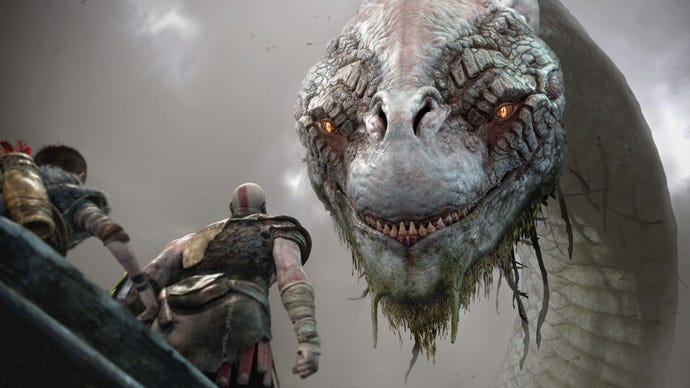



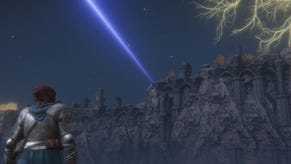

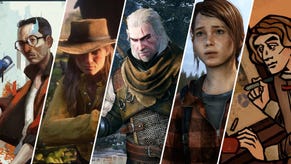


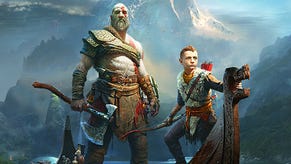


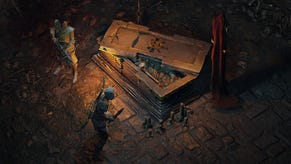
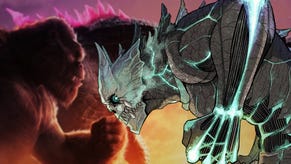
_ddwYK80.png?width=291&height=164&fit=crop&quality=80&format=jpg&auto=webp)
